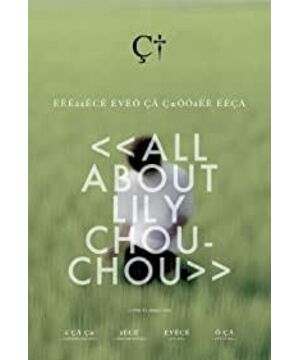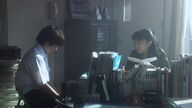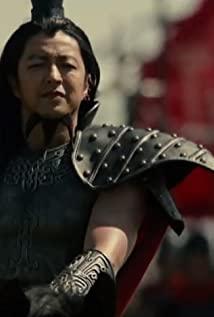No one understands youth more thoroughly than him.
The transformation of Hoshino. That summer on that small island, not only a stranger, but also the gentle and elegant boy died. Hoshino's existence is the product of the contradiction between reality and naked youth. He is pain, he is indifference, he is struggling, he is numbness, he is anger and weakness. Hoshino let the cruelty of youth have nowhere to hide.
When he saw through the ridiculousness and nothingness of life, he chose to destroy the world and himself in a mechanical and brutal way.
Hasumi, a boy with headphones in the blue sky and wheat fields. Unconditional choice to submit, compared to Hoshino's unwillingness and shouting. He silently obeyed, silently humiliated, silently watching the girl he liked being insulted, silently sending the girl home, silently watching her jump off.
When violence is ubiquitous, when repression gradually becomes a matter of course under the ravages of reality, Hasumi chose to tear himself apart, half eroded, and half on the sidelines.
Hoshino is strong and desperate in Lily Zhou's singing, and Hasumi numbs her pain senses in Lily Zhou's singing.
Iwai, a boy who never grows old, is obsessed with dissecting the time and space called youth.
A youthful fantasy story, it will expose cruelty and beauty—the ultimate twin flower—all at once without reservation.
The more darkness and despair, the more outbreaks and the emergence of life. The more hazy and beautiful, the cruel and dirty.
No one will ever mention youth again.
Hoshino, Hasumi, Tsuda, and Kuno were all destroyed in this transformation of youth, so they live forever in the ether that Lily Zhou woven with singing.
And we, the humble and ordinary under the sky, watched our youth die, walked into this world step by step, grew up silently, and grew old.
No one will ever mention youth again.
View more about All About Lily Chou-Chou reviews










